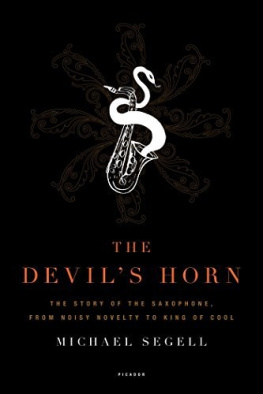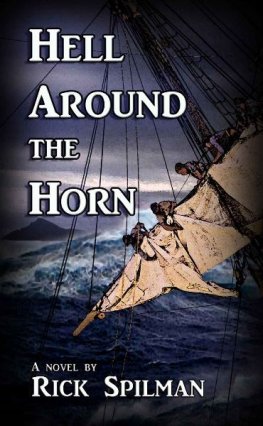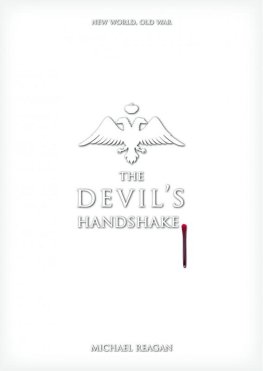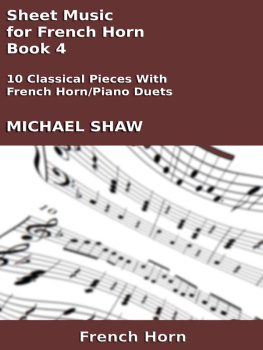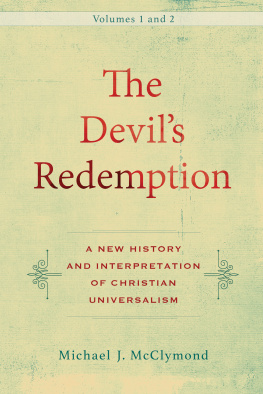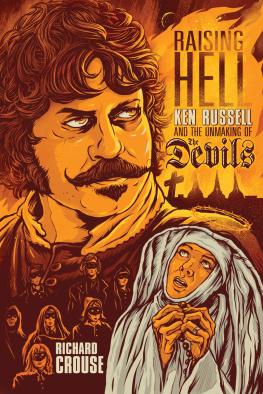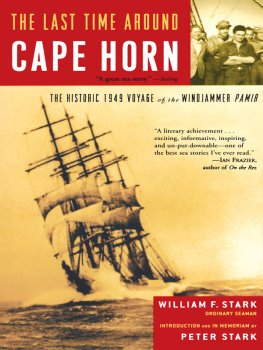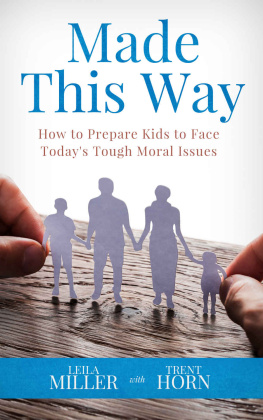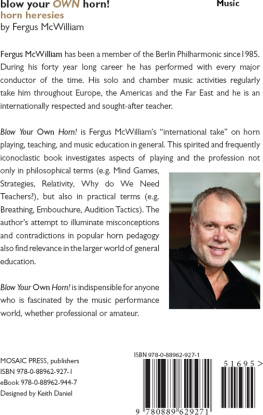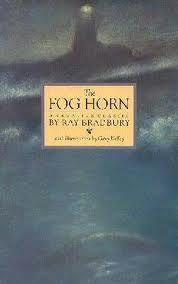Michael Segell - The Devils Horn
Here you can read online Michael Segell - The Devils Horn full text of the book (entire story) in english for free. Download pdf and epub, get meaning, cover and reviews about this ebook. year: 2005, publisher: Farrar, Straus and Giroux, genre: Detective and thriller. Description of the work, (preface) as well as reviews are available. Best literature library LitArk.com created for fans of good reading and offers a wide selection of genres:
Romance novel
Science fiction
Adventure
Detective
Science
History
Home and family
Prose
Art
Politics
Computer
Non-fiction
Religion
Business
Children
Humor
Choose a favorite category and find really read worthwhile books. Enjoy immersion in the world of imagination, feel the emotions of the characters or learn something new for yourself, make an fascinating discovery.
- Book:The Devils Horn
- Author:
- Publisher:Farrar, Straus and Giroux
- Genre:
- Year:2005
- Rating:3 / 5
- Favourites:Add to favourites
- Your mark:
- 60
- 1
- 2
- 3
- 4
- 5
The Devils Horn: summary, description and annotation
We offer to read an annotation, description, summary or preface (depends on what the author of the book "The Devils Horn" wrote himself). If you haven't found the necessary information about the book — write in the comments, we will try to find it.
The Devils Horn — read online for free the complete book (whole text) full work
Below is the text of the book, divided by pages. System saving the place of the last page read, allows you to conveniently read the book "The Devils Horn" online for free, without having to search again every time where you left off. Put a bookmark, and you can go to the page where you finished reading at any time.
Font size:
Interval:
Bookmark:

Table of Contents
W ynton made me play tenor, Branford Marsalis is saying as he sleepily jabs a spoon at a cumulus of milk froth that tops his cappuccino. I was playing alto in Art Blakeys band, and he says, Man, you dont play the alto. Listen to the way you play. You never play in the upper register, youre always down around the bottom of the horn. The bottom of the alto is the top of the tenor, so you should just play tenor.
He takes a sip and licks the froth from his lower lip, which is creased in the middle and looks like the perfect home for a buzzing saxophone reed. A couple weeks go by. Hes starting a new band and asks me to help him find musicians. He says, I need a piano player, and I say, Kenny Kirkland. I need a drummer, and I say, Jeff Watts. He says, I need a tenor player, who do you know? I say, I know a guy. He says, Really? Whats his name? I say, He doesnt have a tenor yet, but hell have one in two weeks. So thats how I started playing tenor, and he was totally right.
Were sitting in a Starbucks in New Rochelle, a cozy suburb of New York not far from Branfords home, where he lives with his wife, a teenage son, and a toddler daughter. Its late morning and hes agreeably rolled out of bed, thrown on a New Jersey Nets T-shirt, light red workout shorts, and a pair of hybrid golf shoe/sneakers, and met me for coffee.
It was like finally meeting the right woman, says Branford, who told his friends he would marry his wife, his second, after their first meeting. The alto was like a first love affair and soprano like a first marriage. Now playing tenor is an extension of my personality. Its up to me what I want to projecthappiness, sorrow, existential dread, whatever. It shows me all my limitations and strengths. Its really good at that. And for jazz music, nothing beats the depth and range of the tenor. I cant imagine songs like Alabama by Coltrane, or the last movement of A Love Supreme , or the second movement of Freedom Suite by Sonny Rollins being played on alto.
Branford played piano as a kid, but it was a bitch to carry around a Fender Rhodes to the gigs he played with his R&B band. He learned the clarinet, but couldnt imagine a career for himself other than in an orchestra. At fifteen, he talked his father into buying him an alto saxophone, a Yamaha student model that he promptly disassembled. Why? Why not? he says. I just wanted to know how it worked. Like everyone else in his brilliant family, he got good fast, but the alto never felt totally right. For one thing, Charlie Parker already did everything one could do on the alto. So he spent time mastering the soprano, considered by many to be the most difficult of the saxophones, a tutorial that culminated in a 1986 hit record, Romances for Saxophone . Like many modern tenor players, he now routinely moves between the big and little hornsboth B-flat instrumentsand rarely plays the alto.
The soprano can come off like an operatic voice, he says. When I worked on that record, all I listened to were singersKiri Te Kanawa, Kathleen Battle, Maria Callas. It amazed me how much I could approximate how they sing. And as I started working more on the instrument, I found I could make it sound like an English horn, a clarinet, or an oboe. Its real malleable that way.
Branfords wife, their little girl in tow, has dropped by to pick up his car, so I tell him Ill give him a ride home. He spots a saxophone case in the back of the car; it contains my newly rented Armstrong student-model tenor. He has to see it, obeying a superstition he says is too complicated to explain. He rigs up the horn, plays a furious string of notes through the entire natural compass, and the sax-o-phone, the voice of Adolphe Sax, booms across the parking lot, dodging buses and SUVs and slipping around moms with strollers before dispersing into the woods of a golf course across the highway. This will do until you get your own horn, he pronounces.
A natural pedagoguehe is a Marsalis, after allBradford cant resist giving a beginner a little lesson. Heres what I want you to practice, he says, tuning the horn by pushing the mouthpiece a little farther onto the crook. He hands it to me. Its a tonguing exercise. Set your metronome to 130, then articulate each note three times before rising to the next on the last quarter note and pausing. Then do the same with the next note. Go through all two and a half octaves, or until your tongue just quits.
I start with D and clumsily tongue my way up to the next octave. Not bad, Branford says as he writes down his telephone number on a piece of paper. Call me if you have any questions.
Thus ended my first lesson on the saxophone, the first of several tutorials that would spontaneously break out as I explored the horns glorious and often controversial history with some of its finest practitioners. Saxophonists, Ive learned, are a generous and agreeable lot, enormously sympathetic to a new convert. Immediately, they know something compelling and personal about the neophytenamely, that hes been seduced by a power he cant quite understand and yet is helpless to resist. Theyre happy to help in any way they can.
Since meeting Branford, Ive talked to hundreds of saxophone playersbrilliant young stylists such as Marcus Strickland, Vincent Herring, and Ron Blake; middle-aged virtuosos such as Michael Brecker and Joe Lovano; and emeritus lions such as Jimmy Heath and the late Illinois Jacquet. Almost every one of them describes his virgin encounter with the horn as some kind of epiphany, conversion, mystical eventor, more prosaically, a mugging. Not long before he died, Benny Carter told me that the first time he played the saxophone, at fourteen, he felt extraordinary joy and that every day since had been a religious experience. David Murray, who grew up in the Pentecostal Church, described his initial encounter as an experience not unlike that of being saved. Sonny Rollins said that when his mother gave him his horn and he first put it to his lips, I got that buzz. After that, any time I practiced I was in heaven, another place. It was more like it took me over. Lee Konitz recalls the transfixing golden sparkle of the horn set off against the dense purple velvet lining of the case, and the narcotic smelllike that of Prousts madeleine: Ah, the smell. Claude Delangle remembers the feeling of being invaded by a virus after first tracing with a small finger the keyboards beautiful, complex architecture. Phil Woods can vividly picture his mother pulling the cased instrument from its bedroom hiding place, as though it was a dirty family secret that he was now old enough to understand, and his hands trembling as his fingers magically assumed a perfect position on the sleek, sexy, serpentine vessel.
For me, it was a thunderbolt, a lightning strike that instantly and permanently rearranged my brain chemistry. Not long before I met Branford, a friend of mine, Ortley, strapped his Selmer Mark VI alto saxophone around my neck and showed me where to rest my fingers and how to form my embouchurethe recruitment of several dozen facial muscles that support the lips, tongue, and teeth around the mouthpiece. I took a long breath and blew. The horn responded with a rich, resonant, low E-flat. I blew again, extending the notemy first long toneand my whole body seemed to shape-shift into a musical instrument, my cells breaking down into their component atoms and gluons and reconstructing themselves with a unified mission: to produce a perfect tone. I noodled for another five minutes, found a simple three-note melody, and repeated it, now convinced that some long-dormant past-life musicianship had been unshackled.
Since that first long tone, Ive been in the throes of an infatuation that grows deeper day by day. The object of the only obsession that has exceeded this one is now the mother of my children. Perhaps youve experienced the feeling: theres a primitive recognition, its all so deeply familiar. I know you, this is not new, we go way back .
Next pageFont size:
Interval:
Bookmark:
Similar books «The Devils Horn»
Look at similar books to The Devils Horn. We have selected literature similar in name and meaning in the hope of providing readers with more options to find new, interesting, not yet read works.
Discussion, reviews of the book The Devils Horn and just readers' own opinions. Leave your comments, write what you think about the work, its meaning or the main characters. Specify what exactly you liked and what you didn't like, and why you think so.

